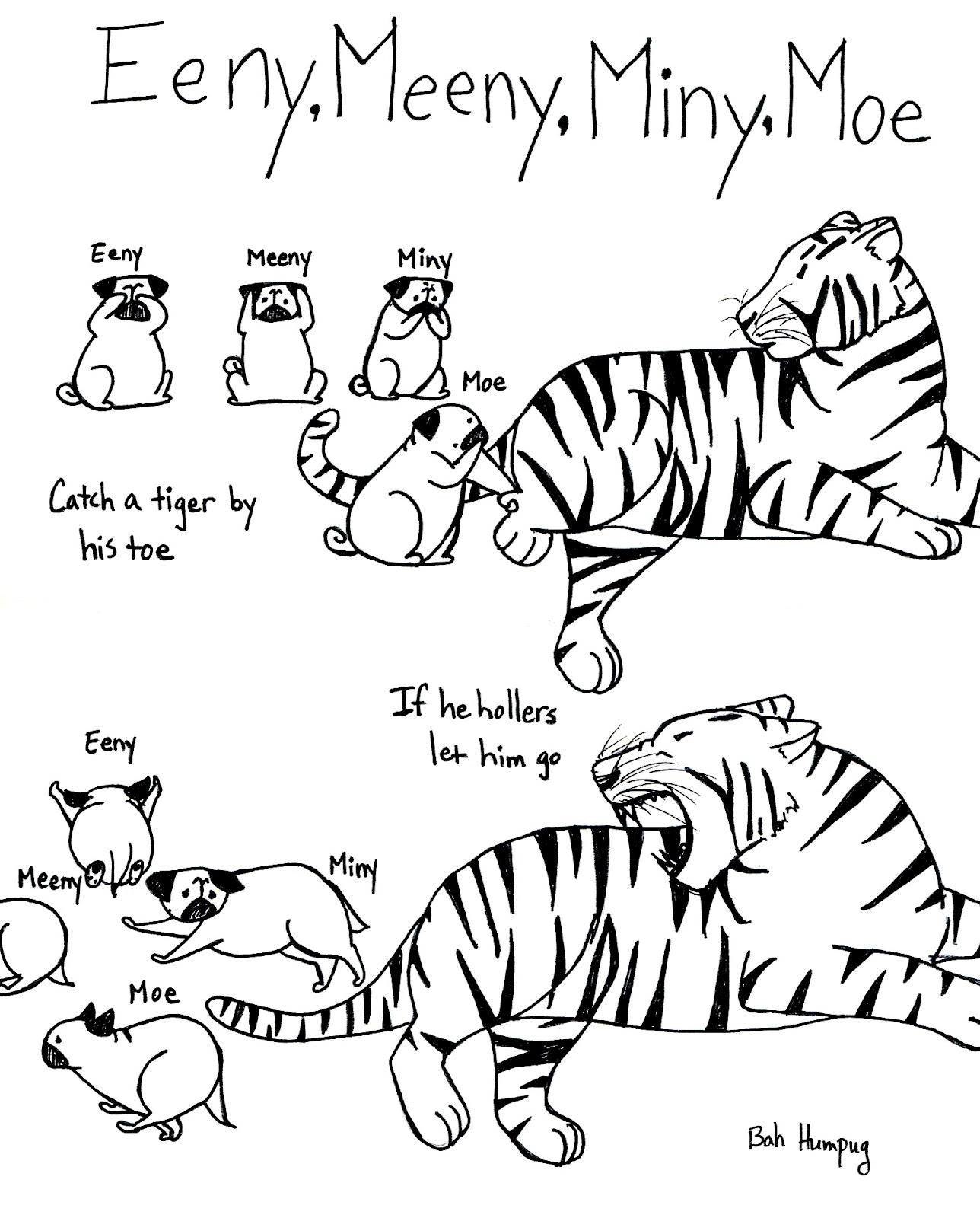

He never thinks about the old man with a beard on the front of his “Child’s Illustrated Old Testament,” but now he’s wondering. The slightest sound stiffens his whole body.

The story of Samuel has made him nervous, tense as a cat. The boy in Stratford is listening for his name in the night. But it was the voice of the Lord calling him. Three times in the night he heard his name, three times he went to the bedside of Eli. When he heard his name, Samuel thought the high priest was calling him. In the middle of the night a voice called out his name: “Samuel! Samuel!” He was an attendant of the high priest and lived in the temple of Shiloh, without his parents. That afternoon in his Sunday-school class at the Jewish Community Center, Mrs.
#Eenie meenie miney mo catch a nigger by the toe windows#
The boy thinks the rectangles are the shapes of the open windows under the partially raised blinds, but he isn’t sure. Sometimes a car passes on the street alongside the yard, throwing two rectangles of light across the dark ceiling. For donkeys it’s hee-haw, for roosters it’s cock-a-doodle-doo, but for crickets you have to make up your own sound. Through the windows he can hear the sound of summer: the chk chk chk of crickets from the vacant lot on the other side of the back-yard hedge. The boy, seven years old, lies awake in his bed on the second floor, under the two screened windows that look down on his back yard. It’s a summer night in Stratford, Connecticut, 1950. From outside the walls of the temple he hears the high-pitched wail of a young sheep.

Shimmering cliffs of water towered up on both sides, and as the watery walls began to plunge down on him he woke with a cry. Has Samuel had a dream, in which a voice called out his name? Only recently he dreamed that he was walking alone through the parted waters of the Red Sea. But never once has he called Samuel in the night. Is it possible that Eli called his name without knowing it? The priest is old, sometimes he makes noises with his lips in his sleep, or mutters strange words. In his years of attending Eli he’s come to understand a great deal about the temple and its rules, and he tries to understand this night as well. He walks back to his chamber, where he lies down but doesn’t close his eyes. Or perhaps, with a touch of gruffness, since he doesn’t like being awakened in the night: “I called not lie down again.” Samuel turns obediently away. He seems a little confused, like a man roused from sleep. “You called me,” Samuel says, or perhaps his words are “Here am I for thou calledst me.” Eli opens his eyes. Eli’s head rests on a pillow of goat’s hair and his long-fingered hands lie crossed on his chest, beneath his white beard. Because he is the high priest of the temple of Shiloh, his mattress on the wooden platform is stuffed with wool, not straw. He pushes through the curtain and enters Eli’s chamber. “Samuel!” He flings aside his goat’s-hair blanket and hurries, almost runs, through the dark. Did Samuel forget to close the temple doors at sunset, did he allow one of the seven flames of the lamp to go out? But he remembers it well: pushing shut the heavy doors of cedar, visiting the sanctuary and replenishing the seven gold branches with consecrated olive oil so that the flames will burn brightly all night long. What’s wrong? Eli never calls his name in the middle of the night. He hears it again, clearly this time: “Samuel!” Eli is calling his name. He is twelve years old, according to Flavius Josephus, or he may be a year or two younger. What matters is that Samuel wakes suddenly in the night. We like such details, but they do not matter. A curtained doorway leads to the chamber of Eli, the high priest of the temple of Shiloh. Let’s say that he is lying in an inner chamber, close to the sanctuary, perhaps adjacent to it. Less certain is whether Samuel’s bed is in the sanctuary itself, where the Ark of the Covenant stands before a seven-branched oil lamp that is kept burning through the night, or in an adjoining chamber. Most commentators agree that the incident takes place inside the temple, rather than in a tent outside the temple doors, under the stars.


 0 kommentar(er)
0 kommentar(er)
